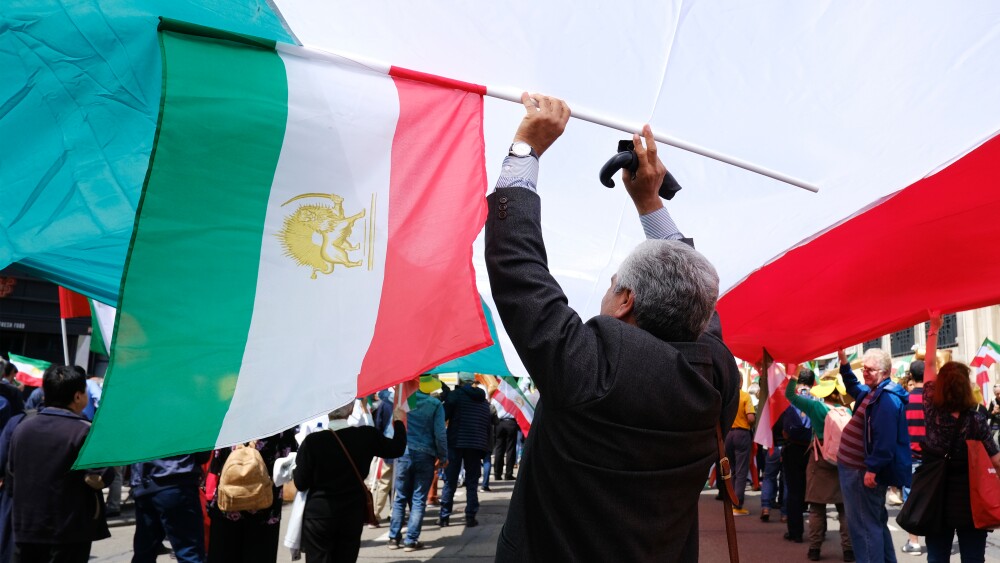Why does Iran’s opposition keep failing in its goal to oust the Islamic Republic’s ruling regime? Many scholars like University of Tennessee-Chattanooga professor Saied Golkar rightly highlight the Islamic Republic’s entrenched security apparatus—a web of surveillance and intimidation that smothers dissent before it can build momentum. To blame the failure to topple the ayatollahs solely on the regime’s use of brute force is an incomplete explanation that too often becomes an excuse to let another culprit off the hook: the failure of Iran’s opposition, and especially Iranian exile groups.
Many Iranians—arguably most—yearn for the “good old days” of a secular, modern country connected to the world.
Israel’s strikes on Iran’s military infrastructure during Operation Rising Lion revived hopes for regime change, especially among monarchists who see Prince Reza Pahlavi as the rightful heir to the Pahlavi dynasty. Many convinced themselves that this time, Israeli bombs would clear the way for a return of the monarchy that Ayatollah Ruhollah Khomeini’s Islamic Revolution ousted in 1979.
Undeniably, nostalgia for the Pahlavi era runs deep inside Iran. Many Iranians—arguably most—yearn for the “good old days” of a secular, modern country connected to the world. But nostalgia alone will not topple an authoritarian regime, especially when the opposition has failed, year after year, to build any credible network inside the country.
Compare this to the 1979 Islamic Revolution. Khomeini had an organized, nationwide network through Iran’s mosques. Every village, town, and district had a mosque—and many mosques advocated for revolution. In the last months leading to the overthrow of the shah, mosque-based “Neighborhood Defense” units known as komitehs enforced Khomeini’s orders. Even during exile, his movement pursued a long-term plan to establish religious schools that would train a generation of revolutionaries. Many future regime officials and Islamic Revolutionary Guard Corps commanders came from this network of schools, mosques, and komitehs. This grassroots machine spread the message, mobilized crowds, and was able to take power when the moment came.
Forty-five years later, the Iranian opposition abroad has built nothing comparable. Instead, it has wasted fortunes on numerous grand conferences in European cities and expensive summits in hotel ballrooms, endlessly repeating the same slogans to the same familiar faces—often ending in feuds and deeper fragmentation. While the regime perfected its multi-layered security state, the opposition perfected its ability to bicker on social media and give satellite television interviews. Too many self-proclaimed leaders have become regulars on diaspora talk shows or on endless interviews, recycling old talking points instead of organizing new structures or networks inside Iran. They are commentators more than they are political activists.
Worse, this circus has handed the regime an easy propaganda win: portraying any alternative to the regime as a collection of disconnected, opportunistic narcissists, Don Quixote-type characters who thrive on grants and funds but have no real strategy for the people whose freedom they claim to champion.
People fighting for freedom need more than courage alone. They need a plan.
None of this excuses the regime’s brutality—its willingness to torture, shoot, and hang its own citizens, or its tight grip on internet access and communication. But people fighting for freedom need more than courage alone. They need a plan. They need a structure, a road map, and an alternative worth risking everything for.
Today, millions of Iranians seethe in silence. They are angry, exhausted, and desperate for change. But they look over their shoulders and see no trusted organization, no plan for what happens the day after, no clear “next step” if they defy the regime and storm a police station. That uncertainty, as much as the regime’s guns, is why the streets fell quiet even after Israel shattered parts of the regime’s military and security machine.
Until Iran’s fractured opposition learns to match the regime’s efficiency with its own discipline, and creates a real plan for the day after, nothing will change. For the Iranian people to bring down the regime, Iran needs a full-time leader willing to abandon a comfortable life, take real risks, and build something real inside the country.








